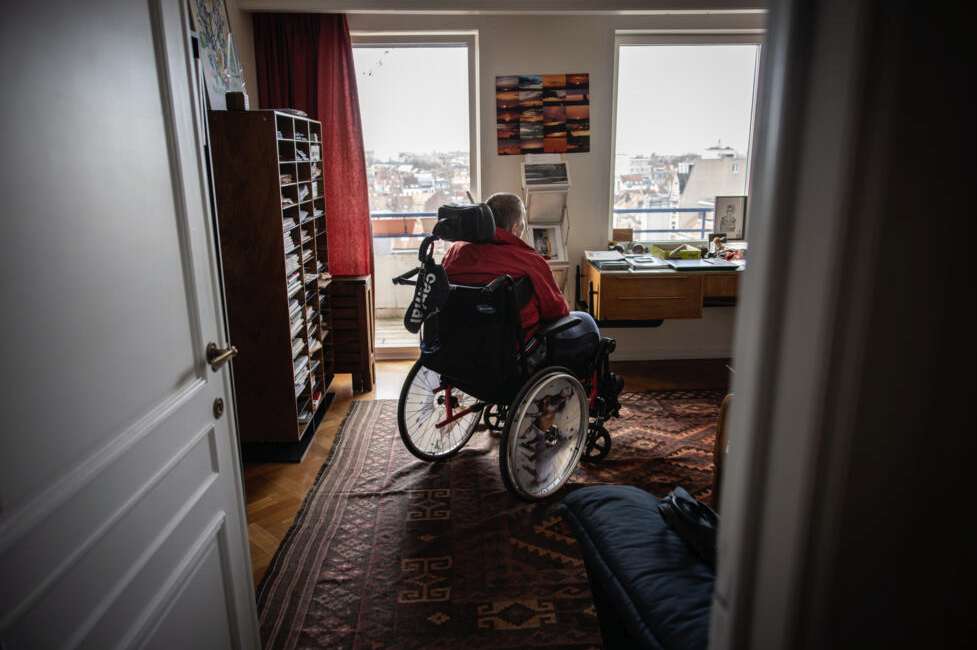On October 15, Uruguay became the first country in Latin America to pass a euthanasia law through parliament. Although Ecuador and Colombia already have judicial decriminalizations, the Uruguayan case was presented as a symbol of progress. Headlines spoke of “death with dignity,” of a modern and liberal country expanding rights. But the letter of the law and its actual scope tell a different story, one that falls outside the official narrative.
While the media celebrates a new right, the legal text introduces serious setbacks in the protection of life. What has been presented as a “progress” could, in reality, be a curtailment of basic rights. It is not necessary to resort to philosophical interpretations to see this: one need only read two central articles of the law.
A “right” that extends to disability and old age
Article 2 states that any person “of legal age and mentally competent” suffering from a terminal illness or an “incurable and irreversible health condition” with unbearable suffering has the right to euthanasia. This wording—seemingly compassionate— opens a wide door: it is not limited to terminally ill patients, but includes people with chronic illnesses, disabilities, or even aging, which, according to the WHO, can also be considered an irreversible condition.
Thus, someone with a disability or a degenerative disease, who experiences their life as a “progressive decline in their quality of life,” could request that their death be induced. Instead of strengthening care and support, the State offers them a way to cease to exist. This creates an unprecedented legal distinction: some are prevented from committing suicide, others are assisted in carrying it out. There is no clearer form of discrimination. And if they say “it’s not the same,” what is the difference? The type of illness or suffering? Age or disability?
Article 4, which regulates the procedure, also reveals troubling gaps. It states that anyone requesting assistance in dying must do so in writing before a doctor. And, if they are unable to sign, another adult may do so “at their request” in their presence. In other words, someone can request euthanasia through another person, without psychiatric oversight or social worker intervention. For less serious decisions, the State requires a notary or judge. To request that death be induced, a signature is sufficient.
Supposed freedom without real guarantees
According to the procedure, the doctor will then “talk with the patient” and verify that their wishes are “free, serious, and firm.” But what freedom is there when someone is suffering intensely and doesn’t receive adequate palliative care? Informing is not the same as providing support, and offering death as the only way out is not guaranteeing freedom, but rather abandonment. A person left to suffer doesn’t choose: they surrender. In that scenario, euthanasia becomes an institutional response to the failure of a care system.
Uruguayan law, far from being protective of rights, turns suffering into a legal criterion for ending life, without offering support or real alternatives. The media narrative—which repeatedly states that the law is for “terminally ill” patients and is full of controls—obscures this fundamental contradiction. Furthermore, the commission that evaluates euthanasia does so after death, not before. If things are done incorrectly, life cannot be brought back.
During the years of parliamentary debate, none of the technical, ethical, or legal objections were addressed. Warnings from specialists in Law, Bioethics, Psychiatry, and Palliative Medicine were ignored. There was no real debate, but rather a staged event: a narrative was fabricated, and all criticism was disregarded. In the name of “personal autonomy,” a text riddled with ambiguities was approved, leaving those who need the most support without protection.
False assumptions among legislators
Listening to various legislators argue or journalists offer their opinions these days, phrases like these are repeated: “It’s understandable that someone in their agony might want to hasten death”; “They shouldn’t prolong our lives or our suffering with artificial life support.” It’s as if they don’t know that an advance directives law has existed since 2009, and we all agree that it’s our right not to have our lives or suffering prolonged simply because of an obsession with keeping us alive. Medical ethics prohibit both therapeutic obstinacy and euthanasia. Either they don’t understand the text, or they can’t imagine the type of patient included in the bill. Uruguayan legislation already provides for a dignified death, without suffering, without needlessly prolonging life, and without causing death (euthanasia).
For five years, several palliative care professionals have repeatedly explained in the media that palliative sedation is not a form of disguised euthanasia; it does not cause death. This is not an opinion, it is a scientific fact. Sedation is an ethical and legal practice that does not kill the patient, but rather lowers their level of consciousness to alleviate difficult-to-manage symptoms. Some senators repeated this myth as an argument: “Euthanasia is already being practiced.” This is empirically false and demonstrably so. But popular belief has prevailed.
The new moral and political hyper-individualism
It is often claimed that opposing euthanasia is “imposing a morality.” But isn’t it also an imposition to consider that a sick or dependent life is worth less? It is repeatedly said that “no one will be forced,” “those who don’t want it shouldn’t ask for it,” and that “everyone can choose.” But, at the same time, a category of people is created whose lives are no longer equally protected by the law. This legal inequality is an ethical chasm that has already become socially normalized: some lives are not worth living.
Paradoxically, in the name of freedom, a new social pressure is emerging: in countries where euthanasia has become legal (Canada, Belgium, and the Netherlands, for example), those who choose to continue living can be seen as selfish or a burden on society. The supposed freedom is transformed into a duty to die.
What is most surprising is that this logic was promoted and voted for by the entire Uruguayan left and some right-wing legislators (if we can still use those terms). Strangely, the left appeals to a libertarian discourse on this delicate matter—”my body, my choice”—forgetting that respect for human dignity demands caring for, not eliminating, those who suffer. They disregard the social injustices that force someone to make decisions they wouldn’t make if they had other options. Thus, a left has been reconfigured that speaks of freedom, but without considering injustices. And although more divided on this issue, the few legislators who voted from the traditional parties, by invoking individual liberty as an argument, betray the liberal humanism that defended the equal dignity of all people, enshrined in the Constitution. In both cases, the Uruguayan humanist tradition of respect and solidarity is diluted in a superficial emotivism that calls what is actually serious social and legal discrimination a “right.”
Crisis of Democratic Dialogue
Contrary to what many assume, the strongest objections to the law did not stem from religious arguments. Believers did not appeal to their faith to participate in the debate, but rather to the same bioethical and legal reasons that any citizen—believer or not—can share. However, much of the political and media discourse needed to create a convenient and easily defeated enemy symbolically: “religious dogmatism,” which is nothing more than a straw man fallacy. As if defending secularism were tantamount to promoting euthanasia. But this avoids discussing the heart of the matter and establishes an imaginary conflict between freedom and religion, when what is at stake is not faith, but dignity and equality before the law.
The result of five years of discussion without any changes to the text of the law demonstrates something deeper: we have lost the ability to listen to reason. Today, it doesn’t matter what is said, but who says it. In public debate, labels carry more weight than arguments, and disqualification replaces thought. There is no dialogue: there is a competition to impose narratives.
It is easier for someone who does not want to think or listen to ideas that challenge them to disqualify the adversary beforehand, rather than taking the time to discuss their reasons.
The euthanasia law not only tests our understanding of life and freedom, but also reveals a broader cultural and political crisis. When society ceases to engage in rational debate and is instead driven by emotions and identity-based prejudices, democracy is emptied of its meaning. And if dissenting opinions become grounds for suspicion, we are no longer expanding rights; we are shrinking the space for shared reason.
*Text originally published on Diálogo Político (DP).














